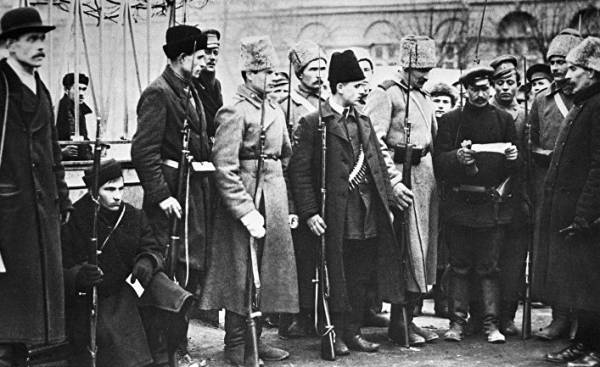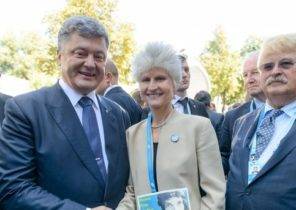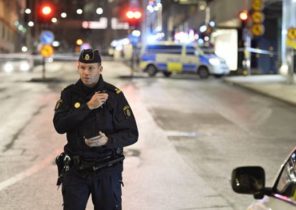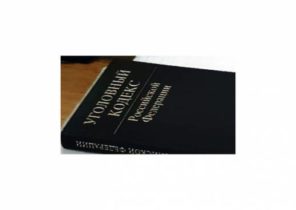
The centenary of the revolutionary events of 1917 created for the Kremlin complex dilemma. The regime of Vladimir Putin can’t just ignore one of the key periods of Russian history, but he, apparently, also cannot find the political revolution of 1917 the right place in the Kremlin’s preferred historical narrative in which special emphasis is placed on stability.
As they say, the revolution is started by politicians and finished by historians. Revolution is often shrouded in myths, and historians have to remove the layers of fables and lies to get to the facts that sometimes dispel the long-standing view. This is what happened with the French revolution: a prominent French historian of the twentieth century françois Furet challenged the revolutionary myths in a series of his very influential books, and loved to say that “the French revolution” ended. The same fate befell the American revolution. Understanding the American revolt against king George III, has undergone over the last 50 years, a significant transformation thanks to historian Bernard Bellino, who presented the revolution as a war not only for government but also for who will get power after independence.
Meanwhile, in modern Russia the process of interpreting events of the past set the tone, not historians. The production of the “correct” version of Russian history instructed the political and power elite.
According to Russian media reports, Putin’s Kremlin believes that the choice of the format of the centennial celebrations of the events of 1917 is a matter of national security. At the end of last year it was reported that the experts of the scientific Council of security Council of Russia discussed this question and came to the conclusion that the authorities need to monitor the process, because, in their opinion, external forces seek to deliberately distort the presentation of events of the revolutionary era and other important periods of Russian history. According to reports, the Board found that historical memory became the object of a “deliberate destructive actions by foreign government agencies and international organizations that implement geopolitical interests in the course of conducting anti-Russian policy.”
In addition to the revolutions of 1917, the Russian security Council has also identified a number of other historical topics that can be distorted and need to be protected. The list includes the policy of the Russian Empire and the Soviet Union in relation to living on their territory national groups, the Soviet Union’s role in defeating Nazi Germany, the Molotov-Ribbentrop Pact and the reaction of the Soviet authorities on political crises in the GDR, Hungary, Czechoslovakia and other countries of the former Soviet bloc.
Very remarkable is the fact that a presentation on the effects of the distortion of history for national security prepared by the Russian General staff. Equally noteworthy is the fact that, speaking in late January at a meeting of the Jubilee Committee on preparation to celebration of the 100th anniversary of the great October socialist revolution, conservative political commentator Vitaly Tretyakov, bluntly stated that Russia’s national interests will be helpful in assessing the socio-political consequences of the events of 1917, historians pushed to the side. According to him, it would be “unreasonable and unfair” to allow historians to shape the attitude of society to the revolution. “For the most part today, as always, historians, first, ideologically biased,… and, secondly, are not political thinkers,” he said.
Whatever the shortcomings of professional historians, the Russian authorities, apparently, and don’t know how to celebrate the centennial of the Bolshevik revolution occurred in November (October by the old calendar), 1917. Before the 90-year anniversary, the Kremlin chose to “easy” at first glance output: in 2004 the decision was made to replace the celebrated November 7, the day of the revolution invented a new national holiday, scheduled for November 4 — national unity Day, the anniversary of expulsion of Polish occupation forces from Moscow in 1612.
This decision coincided with the publication of the book “Sociologia revolution” authored living in Germany, the Russian literary critic Igor Smirnov. In his book Smirnov came up with very divergent with the common interpretation of the events of the reign of the false Dmitry and the time of Troubles, saying what happened in the first Russian revolution. It is unlikely that the book Smirnov had any impact on the Kremlin’s policy of memory, but the establishment after the expulsion of the poles of autocracy in the reign of the then ruling for 300 years of the Romanov dynasty, obviously, seemed like a good cause for celebration.
However, a new holiday has been very unpopular, and the Kremlin, devoid of calm color revolutions in Georgia and Ukraine, changed its approach in a clear attempt to provoke rejection by society subversive revolutionary ideology. 27 Feb 2007 to state “the Russian newspaper” has published an article by Alexander Solzhenitsyn’s “Reflections over February revolution”. For conservative monarchists Solzhenitsyn in February 1917 was nothing but a disastrous prelude to the catastrophic events of October. Therefore, this article (originally written in the early 1980-ies) he unequivocally condemned the whole period of the revolution and expressed sorrow at the loss of “historical Russia” stability, sovereignty and statehood.
Now the political upheavals around the world, including the Ukrainian Euromaidan, indicate that the specter of revolution should not be ignored. At the same time, the Russian authorities have so far failed to determine the story could be presented to the public. A reflection of their confusion is the recent article by Sergei Mironov, a Putin ally in the State Duma.
In his article in “Nezavisimaya Gazeta” called “February is the harbinger of October,” Mironov, apparently, demonstrated a growing “poverty of philosophy” of the Kremlin. His essay is an incoherent set of contradictory theses. Recognizing the positive achievements of the February revolution, including the introduction of the Republican form of government and the recognition of political rights, Mironov at the same time expressed regret about the fall of the tsarist government, claiming that the February revolution led to the erosion of traditional Russian values. In 1917 “the government has lost its sacredness,” he complained. He further added, speaking about following the collapse of the Soviet Union chaos, “the same destructive action of the spiritual and ideological crisis we saw in the 90 years of the twentieth century.”
The main conclusion Mironov, according to the analysis of the 1917 revolution is that Russia needs a strong hand at the head of the state. “Russia is not a country that can afford to have a weak government headed by a spineless ruler, what was Nicholas II, he wrote. — Boon is that in the current difficult times, in the head of the country is such a strong personality as the President of the Russian Federation Vladimir Putin”.
But Mironov did not take into account a very important fact: as the events of 1917 (and 1991), autocratic regimes may superficially seem strong but can be fragile from the inside and crash down with amazing ease. Autocracy is not able to create buckles that gives societies the strength in periods of economic and political challenges. “Russia has faded in two days. At most three”, — noted with surprise the Russian writer Vasily Rozanov in 1917.
The dissonance between the image of the greatness of the Russian Empire and its ignominiously swift collapse should cause proponents of a new form of autocracy in Russia uncomfortable questions. The history of the XX century has shown that autocracy and authoritarianism can be more weak and brittle than other systems, allowing wider to take part in government.
Igor Torbakov is a senior research fellow at the Uppsala University (Uppsala University) and Swedish Institute of international relations (Swedish Institute of International Affairs) in Stockholm.






